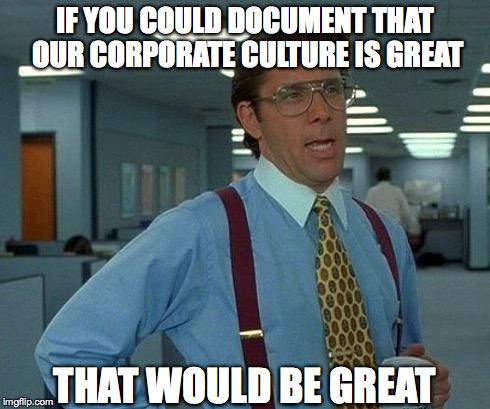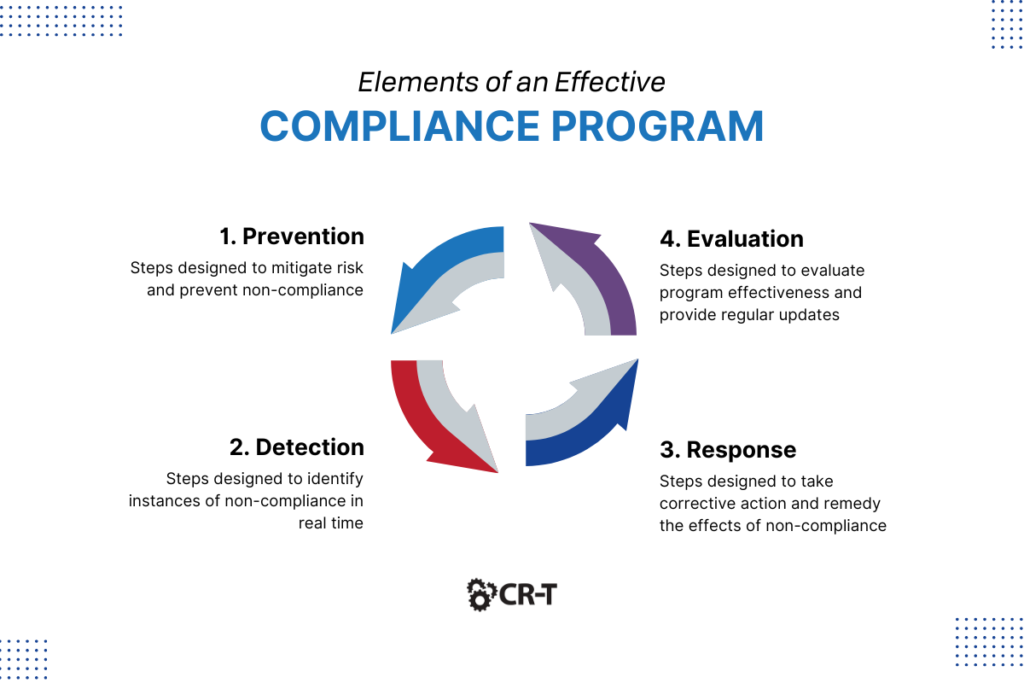Setting Up Compliance Policies: A Comprehensive Guide
Navigate the complexities of policy creation with our comprehensive guide. From outlining key regulations to implementing and enforcing policies effectively, discover the essential steps to ensure compliance within your organization.

Creating effective policies goes beyond merely adhering to regulations; it involves collaboration, strategic distribution, and reliable methods for assessing comprehension.
While this process demands significant time and effort, a software solution can enhance efficiency and ensure seamless compliance. Yet, compliance is intricate, with each industry having its rules, particularly in sectors like finance.
This blog post aims to illuminate the crucial role of compliance across diverse industries, emphasizing potential consequences such as legal ramifications and compliance best practices. You will also get to know how to ensure compliance with policies and procedures.

Understanding Compliance
Compliance entails a company's adherence to pertinent rules and laws, encompassing both country-specific regulations and internal directives. Employing a range of tools and processes, a company strives for robust compliance, aiming to detect, prevent, or resolve misconduct early on.

This proactive approach safeguards against severe consequences like legal actions, fines, or damage to a company's reputation. For instance, when we declare Wishup as GDPR compliant, it signifies that we handle EU customers' data in alignment with GDPR standards.
As a business owner, ensuring compliance policies and procedures with regulations and having the requisite documentation is crucial.
Understanding Regulatory Frameworks
Regulatory frameworks and legal structures at national and international tiers play pivotal roles in shaping conduct. These frameworks exert coercive force from mandatory and binding national laws and regulations to contractual obligations.
Simultaneously, a softer side emerges with voluntary aspects, including integrity pacts, codes of conduct, and arms control agreements. Regulatory frameworks act as the guiding principles, blending compulsion and choice and steering behavior across diverse landscapes.
- Take the Sarbanes-Oxley Act of 2002, born in response to accounting scandals like Enron's, instilling mandatory controls for public companies to restore investor trust.
- The Payment Card Industry Data Security Standard (PCI DSS) safeguards cardholder data, obligating organizations handling credit card data to adhere to security standards commensurate with their interactions.
- The National Institute of Standards and Technology (NIST), a federal agency, collaborates with experts to offer voluntary guidelines for managing cybersecurity risks impacting large enterprises and government agencies.
- Statement on Standards for Attestation Engagements No. 16 (SSAE-16) enforces controls on applications affecting financial reporting, playing a role in SOX compliance for organizations in the public domain.
What are Compliance Policies?
Compliance policies and the procedures are guidelines that steer organizations toward adherence to regulations, setting expectations for every employee. These policies and procedures form a crucial framework to prevent compliance issues.

For instance, a data protection policy outlines the importance of safeguarding data, while procedures detail how employees handle sensitive information.
In essence, the compliance management process identifies and addresses potential red flags in business operations. It fosters a culture of responsibility among employees, promoting professionalism and upholding corporate values. Taking compliance seriously is vital for any organization's internal harmony and external credibility.
What is Compliance Procedure?
Compliance procedures are the backbone of safeguarding your company against rule violations, shielding it from potential fines and legal challenges. This ongoing process ensures consistent and accurate governance of compliance policies over time.
The fundamental aim is straightforward—protecting your business. The investment in compliance yields substantial returns by preventing issues like waste, fraud, abuse, discrimination, and other disruptive practices that pose risks to your company.
Integrating your corporate compliance with the and company across all aspects, from external regulations to employee training, fosters a unified effort to uphold standards and mitigate the risk of significant failures or violations.
Importance of Compliance Policies and Procedures
It is very important to understand why are policies and procedures important. Following compliance policies shields your company from legal and financial repercussions by:
- Risk Mitigation: Reducing the likelihood of penalties, fines, lawsuits, or business shutdown, providing a protective barrier.
- Workforce Education: Enlightening your workforce on best practices and ethical approaches, fostering awareness and responsible conduct.
- Healthy Work Environment: Contributing to a positive workplace, enhancing worker productivity through a culture of adherence to ethical standards.
- Positive Public Image: Building a favorable public perception of your company by demonstrating a commitment to ethical and lawful practices.

Understanding both the terms policies and procedure is important to get to know what is a compliance program used for. Let's see how.
What is a Policy?
- Policies offer general guidelines outlining an organization's approach to specific issues.
- They communicate values, philosophy, and culture, covering employee expectations, company standards, and customer interactions.
- Effective policies contribute to a healthy work culture, providing clarity and purpose for employees' roles.
Qualities of a Good Policy:
- Clear, concise language
- Focus on explaining rules, not implementation details
- Accessibility for all staff
- Represents a consistent, logical framework
What is a Procedure?
- Procedures follow the establishment of policies, explaining the practical "how" behind actions.
- While policies set parameters, procedures provide step-by-step instructions for routine tasks, specifying responsibilities and reporting structures.
- Using the example of vacation requests, policies set PTO eligibility, while procedures detail the steps for approval and priority considerations.
Qualities of a Good Procedure:
- Clear, concise language
- Addresses policy implementation
- Considers user insight
- Provides feasible options without unnecessary restrictions.
Even without key personnel, understanding and implementing policies and procedures ensures a smooth organization.
Compliance Policy Types
Here are the different types of compliance you need to know:
Regulatory
Regulatory compliance is crucial for all industries, not just specific ones. It's a key part of how businesses operate. Though some laws about managing digital stuff can make things a bit complicated, they also bring a bunch of benefits. They help stop expensive data breaches by saying what info will likely get attacked and what needs protecting.
Many rules focus on keeping data safe, but some ensure it stays accurate and consistent. Better data is handy when things go wrong, like during a disaster. Some rules even spell out how a company should handle and get to its data, keeping everything ethical.
Rules change a bunch depending on what industry and place you're talking about. Big companies that work worldwide have to follow the laws in each country. Industries like finance, tech, and healthcare deal with many rules because they're big for the economy, businesses, and people's health. Plus, they're at a higher risk for cyber-attacks because of how complicated and constantly changing the online threats are.
Ethical and Corporate Social Responsibility
Being ethical in business means playing fair and square. It's about respectfully treating everyone—employees, customers, and all the folks involved. That includes following human rights, fair trade, and equal pay.
Then there's this significant umbrella term, Corporate Social Responsibility (CSR). It's like a company's overall plan to do good things. They want to ensure they're looking out for everyone involved, like employees, customers, suppliers, and the communities they're part of.
CSR can show up in lots of ways. Companies might do good stuff for their employees, take care of the environment, give back to the community, or make products that people need. It's like a way of doing business that's not just about making money but also about making a positive impact.
Industry-specific
Industry-specific compliance is all about ensuring companies follow the rules made just for their type of business. These rules are usually set by groups separate from the company or the government.
So, what does compliance include? First, technical documentation ensures everything meets the industry's needs. Then, there's a focus on quality and safety, showing that the company is serious about doing things well. And, of course, there's meeting or even going beyond a certain quality and performance standard.
These industry rules are usually more challenging than the general ones everyone has to follow. If a company doesn't stick to them, there can be big consequences—like getting hit with serious fines or even the company officers ending up in jail. It's a super important part of running a business correctly.
Compliance Procedure Types
Regulatory
Following regulatory compliance policies and procedures means sticking to the rules governments or independent groups set. It's about meeting certain standards and ensuring everything is up to par with what's required.
Ethical and Corporate Social Responsibility
Ethical and CSR procedures are all about doing business fairly and respectfully. This includes treating everyone right, caring for the environment, and giving back to the community.
Industry-specific
Industry-specific procedures focus on the rules designed specifically for a certain type of business. This involves meeting technical needs, ensuring quality and safety, and surpassing industry standards.
Data Protection and Information Security
When it comes to data protection and info security, it's about keeping information safe and following the right procedures. This includes safeguarding data, meeting privacy standards, and preventing unauthorized access.
Tips to Develop and Implement Effective Compliance Policies and Procedures
Feasibility Check
It's crucial to meet with divisional leaders to ensure that the policies and procedures align with individual departments' specific needs and feasibility. This ensures practicality and relevance.
Audience-Centric Formatting
Determine the best policy format based on your organization's diverse audiences. Tailoring policies to suit different groups enhances understanding and adherence.
Enhanced Accessibility
Make sure procedures and policies are easily accessible to all employees. Utilize software features that enhance accessibility and user-friendliness to facilitate widespread comprehension.
Acknowledgment Deadlines
Set clear deadlines for the acknowledgment of each policy and procedure. This ensures timely awareness and compliance; software solutions with tracking capabilities can be particularly beneficial.
Measuring Understanding
Determine the most effective method to measure employee understanding of policies and procedures. Look for software features that allow for assessment and feedback, ensuring a comprehensive grasp of organizational compliance expectations.
Virtual Assistance for Compliance

A virtual assistant, equipped with digital tools and communication skills, contributes significantly to the efficient development, implementation, and management of compliance policies and procedures in a remote working environment.
Track industry regulations and competitor compliance
Virtual assistants excel in monitoring industry regulations and ensuring awareness of competitor compliance. They efficiently keep tabs on evolving requirements, providing businesses with a competitive edge.
Develop templates and draft policy documents
One of their key tasks involves developing templates and drafting policy documents. Virtual assistants bring precision and detail orientation, ensuring policies align with regulatory standards and internal needs.
Establish an organized system for policy documents and records
Efficiently organizing policy documents and records is a forte of virtual assistants. They establish systems that streamline accessibility, fostering a structured approach to compliance management.
Schedule and distribute materials for employee compliance training
Virtual assistants are crucial in scheduling and distributing materials for employee compliance training. This ensures a smooth and timely dissemination of essential information, contributing to a well-informed workforce.
Facilitate internal updates and feedback on policy changes
Keeping the team updated on policy changes is vital. Virtual assistants facilitate internal communication, collecting feedback on policy adjustments and ensuring a seamless flow of information within the organization.
Track policy adherence and generate reports for improvement
Track policy adherence? Check. Virtual assistants not only monitor but also generate insightful reports for improvement. Their analytical skills contribute to enhancing compliance measures based on real-time data.
Why choose Wishup for Compliance?
Wishup stands as a premier online platform, catering to the needs of businesses by providing virtual assistants, online personal assistant, and bookkeepers. Boasting a highly qualified team, Wishup combines expertise with cutting-edge tools and technologies to offer top-notch virtual assistant services.
Experience cost-effective services
Wishup offers budget-friendly services, ensuring you get the most out of your compliance support without breaking the bank.
Partner with the top 0.1% of talent
By choosing Wishup, you're partnering with top-tier talent, ensuring expertise and excellence in handling compliance tasks.
Seamlessly onboard your virtual assistant within a single day
Wishup makes the onboarding process swift and seamless, allowing you to integrate your virtual assistant into operations within just one day.
Eliminate the need for a training budget
Save on training costs as Wishup provides skilled virtual assistants, experts in 200+ skills and 70+ no-code tools, thus reducing the necessity for extensive training budgets.
Effortlessly replace your virtual assistant if you're unsatisfied
Should you be unsatisfied, Wishup allows you to effortlessly replace your virtual assistant, ensuring you always have the right support.
Put your virtual assistant to the test with a 7-Day risk-free Trial
Wishup provides a risk-free 7-day risk-free trial, allowing you to evaluate their services and ensure they align with your compliance requirements.

Conclusion
It's paramount to proactively establish and maintain robust compliance policies to ensure your business's smooth functioning and reputation. Key takeaways include the need for cost-effective solutions, top-tier talent, and efficient onboarding.
Wishup emerges as an ideal partner, offering budget-friendly services, access to the top 0.1% of talent, swift onboarding within a day, and a commitment to a no-questions-asked refund policy.
By choosing Wishup, businesses can effortlessly navigate compliance challenges. To explore how Wishup can specifically cater to your needs, contact us for a free consultation or email us at [email protected]. Secure your business's success by taking proactive steps towards compliance with Wishup's dedicated assistance.
FAQs for Compliance Policies Procedures
What are the 5 steps to compliance?
If you're wondering about the steps to compliance, it involves meeting with divisional leaders, determining audience-centric policy formats, ensuring accessibility, setting acknowledgment deadlines, and measuring employee understanding. These steps collectively ensure a thorough and effective compliance strategy.
What is the process of compliance?
The compliance process revolves around feasibility checks with divisional leaders, tailoring policies for diverse audiences, enhancing accessibility, setting acknowledgment deadlines, and measuring employee understanding. This systematic approach ensures that policies are practical, well-received, and comprehensively understood across the organization.
What are the policies and procedures?
Policies and procedures cover a range of aspects, including feasibility for departments, tailored formats for different audiences, enhanced accessibility for employees, acknowledgment deadlines, and methods to measure understanding. These components collectively form a comprehensive set of guidelines organizations can implement to ensure adherence to regulatory standards and ethical practices.
